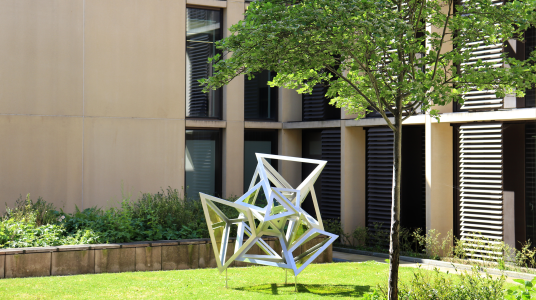A Lagrangian Klein Bottle You Can't Squeeze
Abstract
Given a non-orientable Lagrangian surface L in a symplectic 4-manifold, how far
can the cohomology class of the symplectic form be deformed before there is no
longer a Lagrangian isotopic to L? I will properly introduce this and a
related question, both of which are less interesting for orientable
Lagrangians due to topological conditions. The majority of this talk will be
an exposition on Evans' 2020 work in which he solves this deformation
question for a particular Klein bottle. The proof employs the heavy machinery
of symplectic field theory and more classical pseudoholomorphic
curve theory to severely constrain the topology and intersection properties of
the limits of certain pseudoholomorphic curves under a process called
neck-stretching. The treatment of SFT-related material will be light and focus
mainly on how one can use the compactness theorem to prove interesting things.




